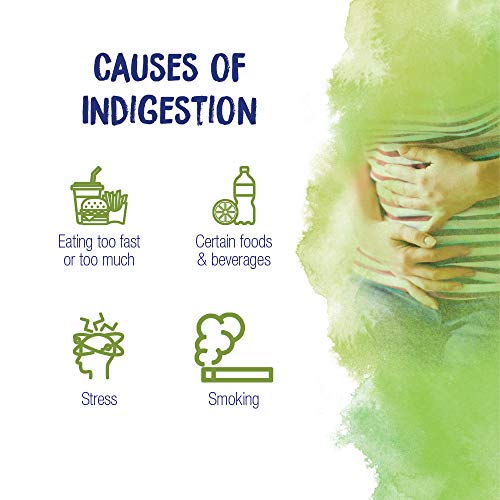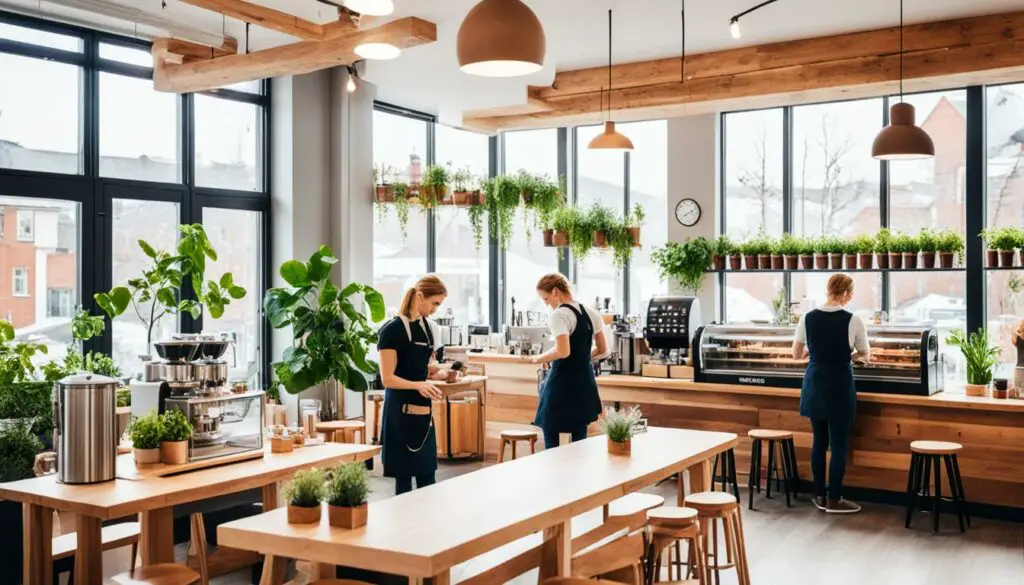Can coffee cause indigestion, acid reflux, or heartburn after drinking it?
Well, coffee contains natural acidic properties and an antioxidant in the form of chlorogenic acid, whose presence in the body provides a lot of health benefits.
This helps minimize the chances of developing heart problems, high blood pressure, diabetes, and other conditions. This article helps you understand what acid reflux is, how it occurs, and much more.
What is acid reflux?
During the digestion process, the body releases strong acids to your stomach to speed up the process. The P.H of this acid is about 2 to 4.
Without the protective mucous lining, this acid can aggressively corrode your stomach and expose you to serious health risks. For some people, this acid often leads to the duodenum or back into the esophagus where there is no protective mucous lining.

Valves at the entrance into the duodenum and esophagus help prevent any contents from your stomach from going in the wrong direction. But if these valves are weak or not functioning properly, this can cause acid reflux.
Besides, such a condition might cause an unpleasant stomach sensation commonly known as heartburn. The excessive inflammation of this might put you at the risk of developing cancer in the long run.
So, does it imply acid isn’t good?
Your body requires both acidic and alkaline foods in specific amounts to function optimally and effectively for a healthier body. But, excess acid levels in your body can expose you to health risks like poor bone health, and the risk of developing liver and heart diseases, among other ailments.
Does coffee cause acid reflux?
According to the American College of Gastroenterology, approximately 60 million Americans experience acid reflux or heartburn more than once a month. Almost 15 million people exhibit acid reflux symptoms on a daily basis. Coffee is one of the beverages on the receiving end of triggering most of these cases. But are these facts or fiction?
Excessive consumption of substances in lemon juice, Beer, vinegar, orange juice, tomato juice plus other foods can contribute to cases of developing acid reflux. This can also lead to detrimental acidic levels in your body system. Some foods when ingested don’t immediately produce acids. But they do so during or after the digestion process when they turn acidic.
Foods like tomatoes, onions, and garlic contribute to acid reflux. This includes excessive intake of grains, processed meats, and sugar.
Other foods likely to cause acid reflux include;
- Spicy foods
- Peppermint and spearmint
- Fatty foods
- Alcohol
- Chocolate
- Onions among others.
Caffeinated products like soda, tea, and coffee are some of them. Caffeine in coffee is largely alkaline, and the excess amounts can loosen up or relax your sphincter body muscles. This might let the acidic food contents reach other body parts, causing heartburn or acid reflux. In addition, coffee has tannins, which sometimes cause a sensitive stomach sensation that often leads to acid reflux.
Besides, conditions like excessive stress levels can also trigger acid reflux. However, the effects of the causative agents will largely differ from person to person depending on the amount ingested.
Types of coffee and acidity levels
The levels of acids in coffee likely to affect you will depend on brewing times and the roasting process. How you roast your coffee might increase or decrease the acidic levels in your favorite cup. For more information regarding this, be sure to check out my post on how to reduce acid in coffee.
- Certified Organic low acid coffee
- 100% Organic Arabica Beans from Sumatra
- Sweet, smoky earthiness
- Hints of cherry and dark chocolate
- Small batch roasted by hand for optimum flavor in our family-run facility
Prices pulled from the Amazon Product Advertising API on:
Product prices and availability are accurate as of the date/time indicated and are subject to change. Any price and availability information displayed on [relevant Amazon Site(s), as applicable] at the time of purchase will apply to the purchase of this product.
Besides, these acidic levels will vary in dark and light-roasted coffee. For instance, green coffee beans contain excessive levels of chlorogenic and citric acids. On the other hand, darker coffee has a heavy concentration of acetic and phosphoric acids.
Is decaf coffee better for GERD?
For coffee lovers who suffer from gastroesophageal reflux disease (GERD), the question of whether to drink regular or decaf coffee is a difficult one. On the one hand, coffee is known to exacerbate GERD symptoms by increasing acid production in the stomach. On the other hand, coffee contains beneficial compounds that can actually help to reduce acid production. So which is it? The answer, it turns out, is a bit of both. Decaf coffee still contains small amounts of coffee acids that can trigger GERD symptoms. However, these acids are significantly less concentrated than in regular coffee, making decaf a better choice for people with GERD. In addition, decaf coffee still has many of the same compounds that offer gastroprotective effects. So while it’s not a cure-all, decaf coffee may be a better choice for people with GERD who want to enjoy the occasional cup.
Can I drink coffee with omeprazole?
Coffee and omeprazole are often taken together to help manage gastroesophageal reflux disease (GERD). coffee is thought to increase the production of stomach acid, while omeprazole works to decrease the amount of acid produced. Together, these two medications can help to control GERD symptoms. However, it is important to speak with a healthcare provider before combining coffee and omeprazole, as there may be potential side effects or interactions. In general, coffee is safe to drink in moderation when taking omeprazole. However, if coffee aggravates your symptoms, it may be best to avoid it altogether and, as always, speak with your healthcare provider about the best way to manage your GERD symptoms.
Is green tea good for acid reflux?

Interestingly, there is some evidence that green tea may actually help to reduce the symptoms of acid reflux. One study found that participants who drank green tea experienced significantly less reflux than those who drank coffee. The exact mechanisms are not yet known, but it is thought that the polyphenols in green tea may help to reduce inflammation in the digestive tract.
So if you’re struggling with acid reflux, it may be worth giving green tea a try. Just be sure to avoid adding any milk or sugar, as these can aggravate symptoms. And of course, if you find that green tea does trigger heartburn, you can always stick to coffee.
What coffee is good for acid reflux?
Some coffee beans are more acidic than others, and dark roast coffee tends to be less acidic than light roast. In addition, coffee that has been brewed for a longer period of time is generally more acidic than coffee that has been brewed for a shorter period of time. For those who suffer from acid reflux, it is best to stick with coffee that is less acidic and has been brewed for a shorter period of time.
Wrap up
Can decaf coffee cause acid reflux or heartburn? No doubt, many people experience acid reflux after taking coffee. If you are the sensitive type, you don’t have to keep away from your favorite cup. You can weigh in on the types of coffee available to try out what works best for you. Furthermore, you will also have to check on your style or process of brewing coffee for healthy and excellent results.
Most people opt for the cold brewing method, using cold water instead of hot water, to reduce the acidity levels. This retains the smooth flavor and quality without having to worry about experiencing acid reflux. Other lifestyle practices can help minimize such cases, like taking smaller meals and avoiding spicy and fatty foods among others.













